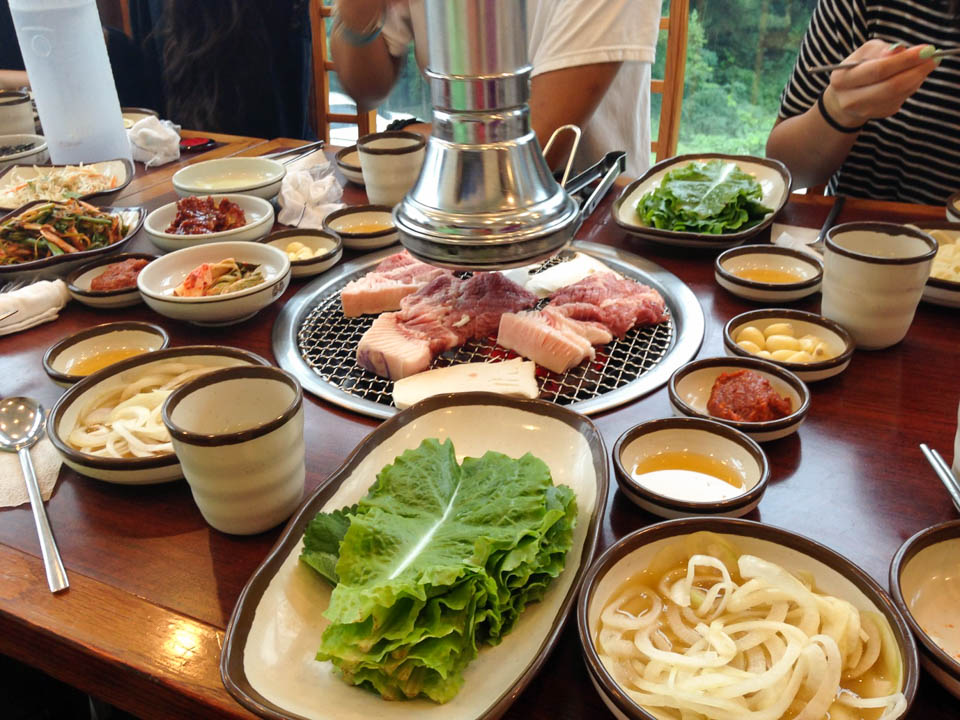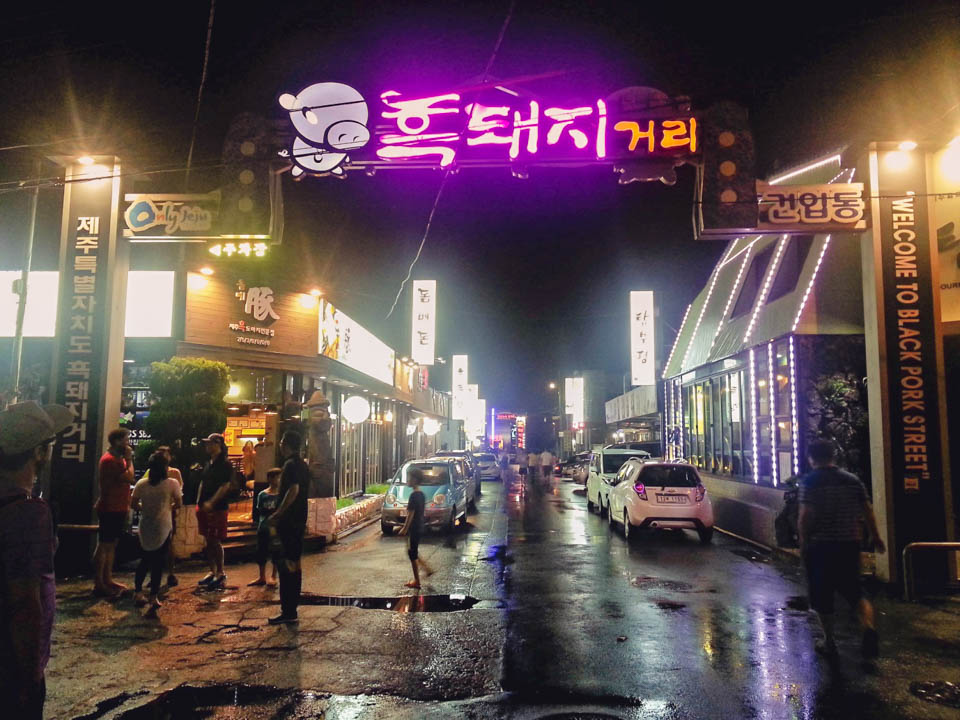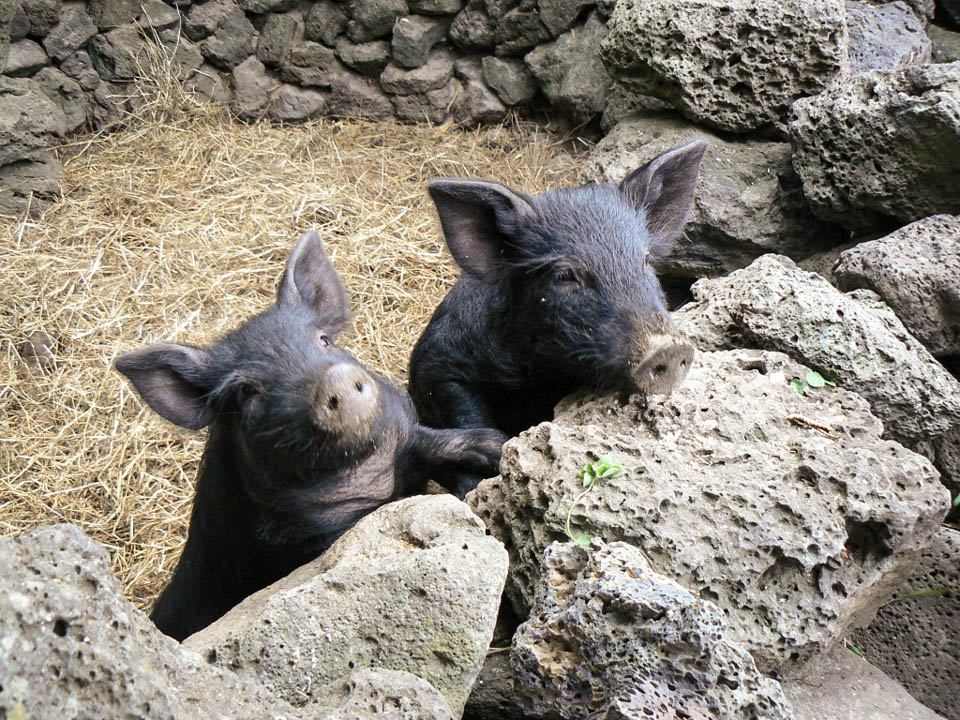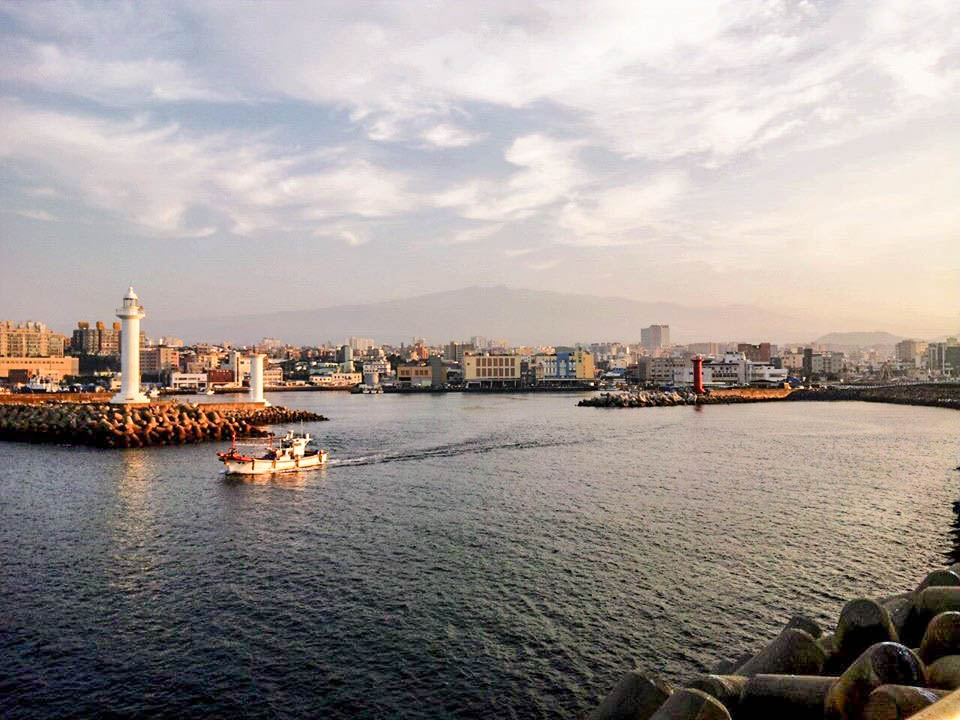Eating out in Korea is a wonderful experience that offers patrons many different delicious foods with a wide range of smells, tastes, and temperatures. Korea is known throughout Asia and much of the rest of the world for its delicious local dishes like the hearty yet tender barbecued pork, Korea’s extra spicy and flavorful chicken, and its many great noodle dishes like nangmyeon and japchea.
Each region of Korea is often known for having a specialty or at the very least, argues that it does something far better than the neighboring areas! Jeju Island is no different in this regard.
Jeju boldly claims that it has the best pork barbeque of all of Korea. After all, this is no ordinary pig that is being served. Jeju black pork or 흑되지 is famed to be in a league of its own and has a far more superior taste from its mainland counterparts.
“Jeju black pork […] is famed to be in a league of its own and has a far more superior taste from its mainland counterparts.”
Besides claiming to be far more delicious, black pork is considered special on the island because the pigs are only native to Jeju. Roughly one in six Jeju black pigs on Jeju are sent to the slaughterhouse, so even on the island the dish is only available at a few restaurants as the supply of pork is controlled and quite limited.

Photo: Jeju black pork belly and side dishes
—
That obviously translates to a higher price.
Many of the famed Jeju black pork restaurants located on the popular Black Pork Street in Tapdong charge around fifteen to twenty percent more for the native hog than for the standard fare.

Photo: Jeju Black Pork Street in Tapdong
—
So, is it worth the extra money? Or is this just another gimmick to pull a little extra dough out of Chinese tourists and newlyweds vacationing from the mainland?
Let’s investigate for ourselves what makes Jeju black pork so special.
Black pork is actually a much redder meat than your average cut of pork. You heard right. Don’t be fooled by the name. The name black pork refers to the color of the animal’s hair, not the meat itself.
The redness of the meat is believed to contribute to a far more complex taste which is often described as having a solid and almost steak like quality to it. It lacks the gamey quality of other wild hogs yet still retains the same fatty taste and elastic texture one comes to expect from that kind of hog.

Photo: Jeju black pigs are generally farm raised and have very rich diets.
—
Elasticity may not sound like the best quality to highlight when showcasing what is appealing about a certain kind of meat— that is until you have taken long cut of Jeju black five layer pig belly over a hardwood charcoal-fueled grill, let the flames slowly cook it, cut it up, and enjoyed the piping hot delicious piece of meat for yourself.
The layers of fat on the cut of meat melt almost instantly when they hit the grill, while the actual meat itself remains firm and soaks up the juicy flavors of the fat and slowly but surely evolves into a piece of pork with a thin crispy layer on the outside with an amazing hidden flavor that is sure to delight you on the inside. The texture is hard to explain as you first bite in as the fattiness makes for a bouncy yet tender texture that melts in your mouth as you eat it.

Photo: Tapdong is an up and coming indie art neighborhood that houses Black Pork Street.
Be sure to visit Tapdong and check out Black Pork Street where you are sure to get the real deal. There are imitators throughout the island who simply sell regular pork at inflated prices. If you’re ever in doubt, look for the little black hairs on the edges of the meat before it is cooked!
Restaurants on Black Pork Street are open from noon to midnight during the week. Be sure to stop by on your visit to Jeju Island and try this unique and special food from Jeju for yourself.
—
Edited by Yoyin Adenusi
Featured images courtesy of EvilYoshida
Besides claiming to be far more delicious, black pork is considered special on the island because the pigs are only native to Jeju. Roughly one in six Jeju black pigs on Jeju are sent to the slaughterhouse, so even on the island the dish is only available at a few restaurants as the supply of pork is controlled and quite limited.
Photo: Jeju black pork belly and side dishes
—
That obviously translates to a higher price.
Many of the famed Jeju black pork restaurants located on the popular Black Pork Street in Tapdong charge around fifteen to twenty percent more for the native hog than for the standard fare.
Photo: Jeju Black Pork Street in Tapdong
—
So, is it worth the extra money? Or is this just another gimmick to pull a little extra dough out of Chinese tourists and newlyweds vacationing from the mainland?
Let’s investigate for ourselves what makes Jeju black pork so special.
Black pork is actually a much redder meat than your average cut of pork. You heard right. Don’t be fooled by the name. The name black pork refers to the color of the animal’s hair, not the meat itself.
The redness of the meat is believed to contribute to a far more complex taste which is often described as having a solid and almost steak like quality to it. It lacks the gamey quality of other wild hogs yet still retains the same fatty taste and elastic texture one comes to expect from that kind of hog.
Photo: Jeju black pigs are generally farm raised and have very rich diets.
—
Elasticity may not sound like the best quality to highlight when showcasing what is appealing about a certain kind of meat— that is until you have taken long cut of Jeju black five layer pig belly over a hardwood charcoal-fueled grill, let the flames slowly cook it, cut it up, and enjoyed the piping hot delicious piece of meat for yourself.
The layers of fat on the cut of meat melt almost instantly when they hit the grill, while the actual meat itself remains firm and soaks up the juicy flavors of the fat and slowly but surely evolves into a piece of pork with a thin crispy layer on the outside with an amazing hidden flavor that is sure to delight you on the inside. The texture is hard to explain as you first bite in as the fattiness makes for a bouncy yet tender texture that melts in your mouth as you eat it.
Photo: Tapdong is an up and coming indie art neighborhood that houses Black Pork Street.
Be sure to visit Tapdong and check out Black Pork Street where you are sure to get the real deal. There are imitators throughout the island who simply sell regular pork at inflated prices. If you’re ever in doubt, look for the little black hairs on the edges of the meat before it is cooked!
Restaurants on Black Pork Street are open from noon to midnight during the week. Be sure to stop by on your visit to Jeju Island and try this unique and special food from Jeju for yourself.
—
Edited by Yoyin Adenusi
Featured images courtesy of EvilYoshida










Leave A Comment